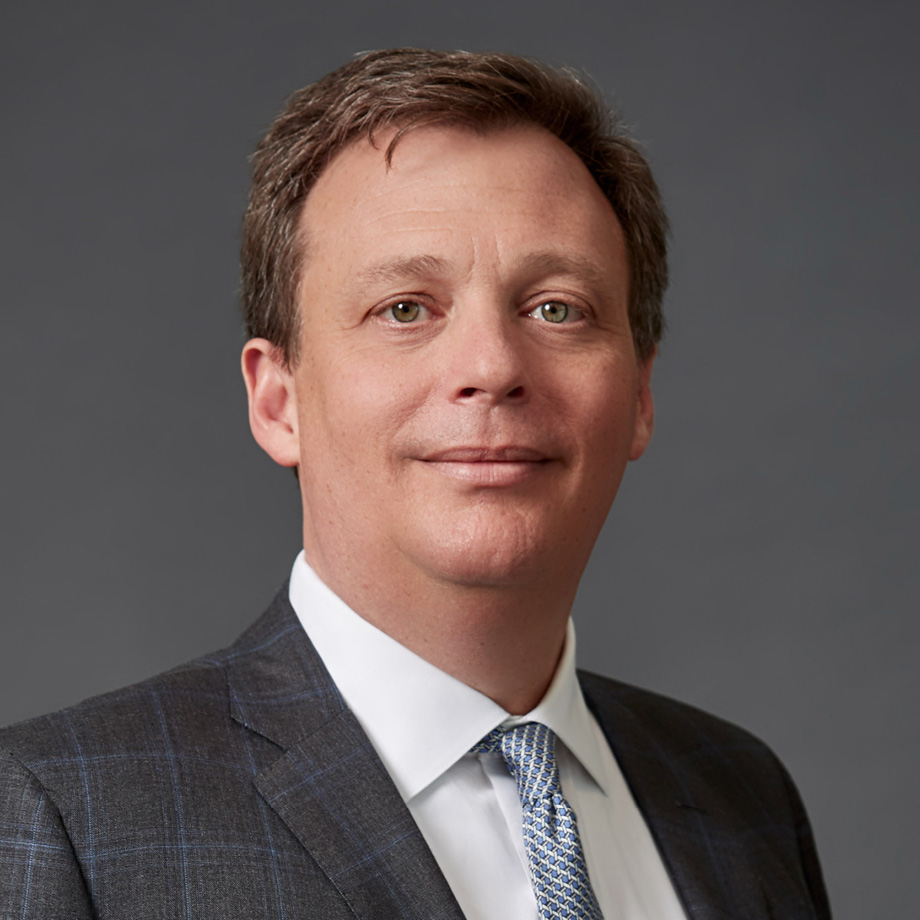
Stephen S. Lee is a founding Principal of Logan Capital Management and the firm’s Treasurer. As a manager of growth portfolios, Mr. Lee plays an active role in the security selection for the firm’s large-cap growth and mid-to-large-cap growth portfolios. He is also a member of the fixed income team. Before founding Logan Capital with his partners in 1993, Mr. Lee was employed at Mercer Capital Management and Merrill Lynch.
In this 3,517 word interview, exclusive to the Wall Street Transcript, Mr. Lee describes his firm’s investing philosophy:
“We’re really focused on high-conviction, very true-to-style strategies that can be used by advisers and clients to meet specific client needs when they’re building portfolios to meet their broader goals.
Currently, we run about $3 billion in assets under management. We’re represented by investment advisers and consultants all over the country and have seen some nice growth over the last several years.”
The focus is on consistent performance:
“Our value team really is looking for rock-solid balance sheets, good cash flow, and then they’re using, in some way, dividend yield as a measure of valuation. And our dividend performers team, again, consistent, good balance sheet, looking for dividend growth. All our strategies across the firm will consistently deliver over time a portfolio that follows that expectation…”
This leads to outsized returns on specific stock picks:
“Our best performer last year was a payroll company, Paycom Software (NYSE:PAYC). You wouldn’t expect payroll to be such a rapid grower, but what that company has done well is they’re using software as a service, or a cloud-based technology model, to really improve the way payroll services are delivered to small-to-midsized businesses.
One of the things that really struck us is that this is a management team that continues to innovate, even when they’re doing well.”
Get the complete picture by reading the entire3,517 word interview, exclusively to the Wall Street Transcript.
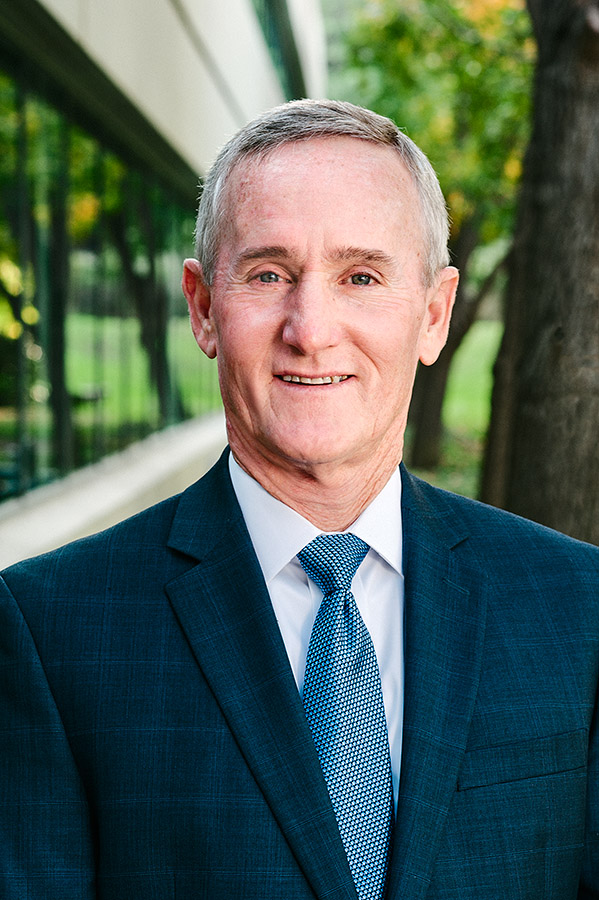
Russell A. Colombo is President and Chief Executive Officer of Bank of Marin Bancorp. He is a lifelong resident of Marin County in the San Francisco Bay Area. Mr. Colombo joined Bank of Marin in 2004 as Executive Vice President and Branch Administrator after 29 years in banking at Comerica Bank, Security Pacific and Union Bank in San Francisco.
He was appointed Executive Vice President and Chief Operating Officer of Bank of Marin in 2005 and assumed the position of President and Chief Executive Officer in 2006. In his current role, he leads the premier community and business bank in the Bay Area, with 22 branches, five commercial banking offices and one loan production office located across Marin, Sonoma, Napa, San Francisco, Contra Costa and Alameda counties.
Mr. Colombo is a board member of the California Bankers Association, Past Chairman of Western Independent Bankers Association and is a member of its executive committee, and Chairman of the Citizens Oversight Committee of SMART — Sonoma Marin Area Rail Transit.
He received a Bachelor of Science degree in agricultural economics and business management from the University of California, Davis, and his Master of Business Administration in banking and finance from Golden Gate University.
In this 3,326 word interview, Mr. Colombo reveals the long term strategy that his built his bank into a leading, local financial institution.
One of the main drivers to success is geographical economics:
“When we look at the economy in the Bay Area, it’s very, very strong.
A lot of that is driven by technology, because in San Francisco and the Peninsula, there is a concentration of technology companies.
Technology is an integral part of industry sectors across the region, and it certainly drives the economy here. Unemployment in Marin County, where we are headquartered, is running just about 2%, which is kind of the definition of full employment. ”
The local populace provides an extremely low cost of capital for the bank:
“I always look at the deposit base as a way of determining if we’re doing a good job with our relationship banking.
Our current non-interest-bearing demand deposits are running about 50% of our total deposit portfolio, which gives us a very low cost of funds. Our cost of deposits is about 21 basis points.
These are primarily operating balances, which are balances that our customers have in the bank that they use every day for their businesses. If that number is high, it tells you that we’re doing a good job with our relationship banking.
They’re very sticky because they’re keeping their deposits with us, and that certainly translates into good things for the bank from a cost-of-deposits standpoint.
In my mind, relationship banking is measured by that deposit number.
There are many banks that say they are relationship bankers. Yet I don’t think there are many community banks in this country, frankly, that have a deposit portfolio like we do, which really speaks to our proven relationship-banking model.”
Get the complete picture of this bank CEO’s operating strategy by reading the entire 3,326 word interview, exclusively in the Wall Street Transcript.
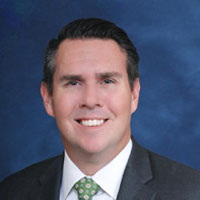
Timothy Coffey is Director, Banks & Thrifts at Janney Montgomery Scott LLC. Prior to joining Janney in 2019, Mr. Coffey was a vice president and research analyst at FIG Partners LLC, a premier investment banking and research firm specializing in community banks.
Before joining FIG Partners, Mr. Coffey was a research analyst at Green Street Capital Management. Prior to that, he covered the banking industry for several business publications in San Diego, California.
In this 2,551 word interview, Mr. Coffey examines how his West Coast based bank stock investment philosophy has produced superior returns for his investors.
“…The California economy is the biggest component of the national economy. California on its own would be a top-four economy worldwide. So from that standpoint, it’s very robust and diversified.
Within the state, Los Angeles County accounts for roughly one in every four jobs in California. So it’s a very big economy with big job centers. Economists expect the California economy to grow half-a-basis-point faster than the national economy in 2020.”
The surrounding region benefits from this economic juggernaut:
“The top idea we have right now is First Interstate Bank (NASDAQ:FIBK) out of Billings, Montana. It’s a $14 billion asset bank with footprint from the eastern part of Montana all the way out to Oregon and Washington state.
This is the type of company I was talking about before. They have a diversified revenue stream; 20% of their revenue comes from noninterest income sources.”
Another top recommendation is from Washington state:
“Another company that we like is Banner Corp. (NASDAQ:BANR) out of Walla Walla, Washington, on the eastern side of that state. Their footprint goes from the Canadian border down to the Mexican border. It’s a very conservative company. Their loan growth is mid-to-low single digits annualized. ”
Get all the top bank stock recommendations from Mr. Coffey by reading the entire 2,551 word interview, exclusively in the Wall Street Transcript.

Amanda Agati, CFA, is the Chief Investment Strategist for PNC Financial Services Group. She leads the team that establishes overall strategic and tactical asset allocation guidance of client portfolios, oversees the evolution of investment processes, provides thought leadership on key investment issues and authors numerous publications.
She also performs research and analytics that drive the overall investment recommendations of the firm, while also managing the firm’s asset allocation models.
In this 3,38o word interview, Ms. Agati showcases her top picks and portfolio management techniques that have made her an enormously successful portfolio manager.
“…We do have a number of core beliefs and an overarching investment philosophy. And what I would say, at a high level, our investing DNA or mantra is that we believe markets can be inefficient and investment opportunities are ever-changing.
A thorough understanding of the past combined with rigorous analysis of the present really does give us insights into the most probable future outcomes.”
The financial returns for 2020 will be a tale of two markets:
“Our view is that, over the first half, the market will be very focused on the solid improvement in underlying fundamentals and the potential for a global cyclical reacceleration.
We’re seeing kind of the earliest green shoots of that over the last two months forming. But by the time we get to midyear, the focus is going to shift pretty dramatically to the 2020 presidential election. And so that very well could create some additional volatility in the second half as the market wrestles with the potential outcome of that event.”
This bifurcation will create an opportunity for investors:
“…We have found that global infrastructure has some really favorable characteristics, particularly at the later innings of this cycle, when volatility tends to be the name of the game in the market. And so what we like about global infrastructure is that it tends to sit more in the developed world. So this is a little bit different from kind of looking at the emerging markets, but it tends to be exposure largely in the U.S. and developed international. And so it’s an opportunity to kind of play in those markets, stay invested in equity, but dial back a little bit of the volatility exposure.
Get the complete picture by reading the entire 3,38o word interview with Ms. Agati, exclusively in the Wall Street Transcript.
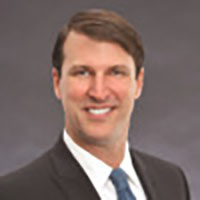
Christian Ledoux, CFA, is Director of Equity Investments at CAPTRUST. He is based out of the San Antonio, Texas, location and joined CAPTRUST from South Texas Money Management in 2019. He specializes in equity research and portfolio management.
Earlier, he was Chief Investment Officer for South Texas Money Management. He received a degree in business economics from the University of California at Santa Barbara.
In this 3,075 word interview, exclusively in the Wall Street Transcript, Mr. Ledoux reveals the top picks from his firm and where 2020 will end up for the market:
“…We’ve just recently bought is SmileDirectClub (NASDAQ:SDC). SmileDirectClub is a competitor to Invisalign, which is the maker of clear teeth aligners, and we bought SmileDirectClub because it fits our growth criteria, which is improving growth profile. And that means that they’ve been a grower, but they’ve got something going on in their business that is making it grow even faster.
And what they’ve done in a nutshell is they’ve democratized the fixing of teeth.”
The company growth rate is powered by distribution expansion:
“…They recently signed a deal with Walmart (NYSE:WMT) to add a scanning service within the Walmart facility so that people that are interested, they can go right in and have their teeth examined and then give them a tray to send home…They also have deals with CVS (NYSE:CVS) and Walgreens (NASDAQ:WBA)…”
Mr. Ledoux combines this growth investment parameter with yield on dividend paying securities:
“On the equity side, the yield on our portfolio is about 50 basis points higher than the S&P 500 right now, and it’s because we have an emphasis toward value stocks that pay higher dividends.
And that’s been helpful to our client base, in that they’re able to get an equal amount of current yield out of their stock portfolio as they are from their bond portfolio.”
Get the complete picture of this 3,075 word interview by reading it in its entirety, only at the Wall Street Transcript.
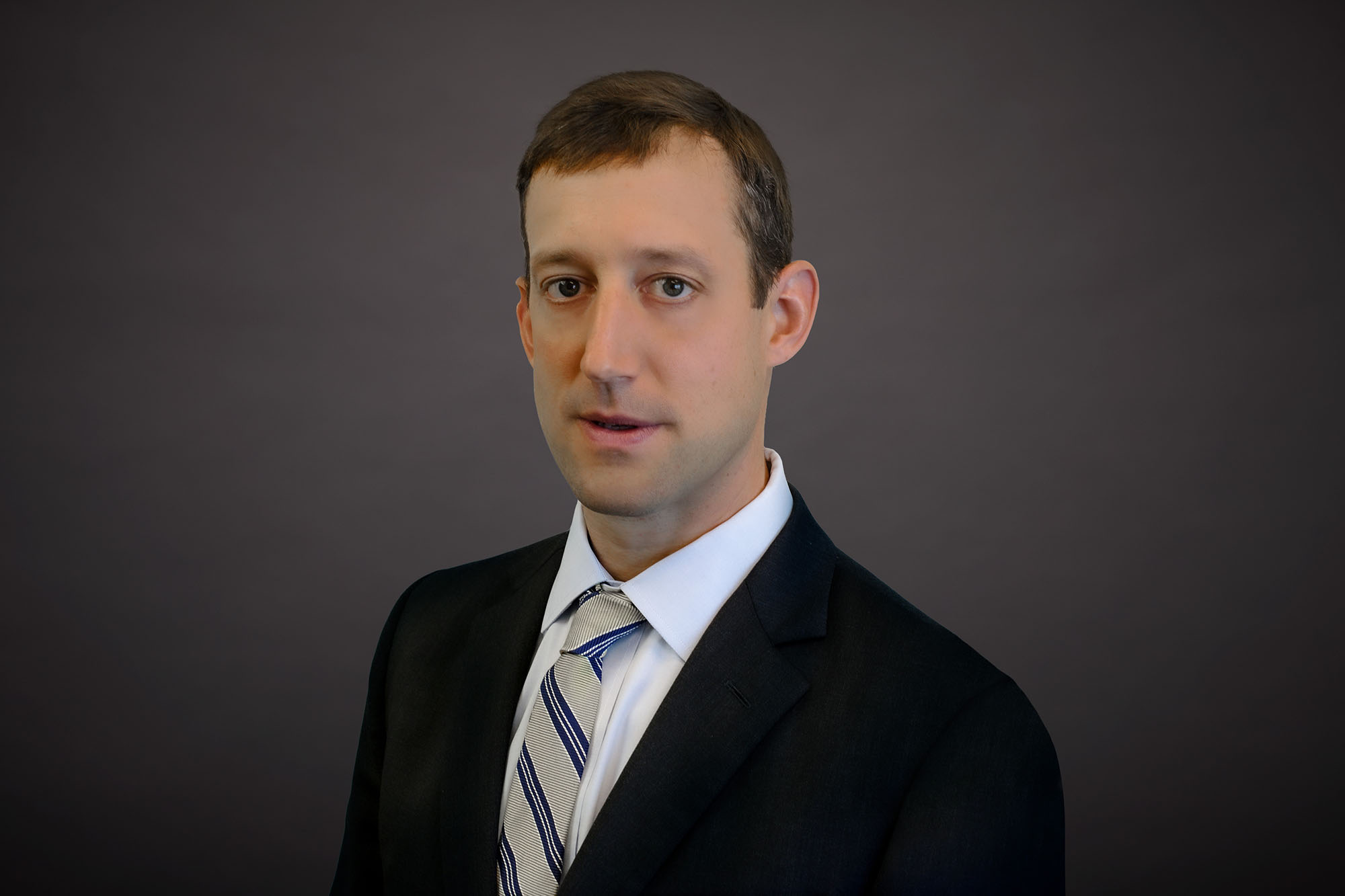
Jason Wulff, CFA, is a Portfolio Manager and joined Eagle Asset Management, Inc., an affiliate of Carillon Tower Advisers, in 2015. He is Lead Portfolio Manager for the Eagle SMID Cap ESG Select Strategy and SMID Cap Strategy and Portfolio Co-Manager for the Small Cap Strategy.
Mr. Wulff has 19 years of investment and financial industry experience and previously worked alongside members of his current Eagle investment team at Sentinel Asset Management.
In this exclusive 2,530 word interview, Mr. Wulff reveals the core components of his investment strategy:
“It’s remarkable with all this talk going on in the environment, we’re increasingly having management teams come and ask us about our perspectives on diversity, on executive compensation and on sustainability. And we think that’s where real value is being created, and we’re pretty excited about that opportunity.”
Cobining the E,S,G strategy with a positive cash flow filter results in above average returns:
“In the small-cap universe, we know there’s a lot of nonearners. I mean, almost 40% of the index doesn’t generate profits, doesn’t generate free cash flow.
In tech and other areas that I focus on, there’s very little discernment between those companies that actually are generating sustainable cash flows and those that do not.
And we continue to see a lot of opportunities of high-quality businesses that are growing, that are trading at reasonable valuations, whether that be a 4% or 5% free cash flow yield, which in our minds is attractive to most other investment opportunities.”
One example is this small financial institution:
“Columbia Bank (NASDAQ:COLB) — it is an extremely high-quality bank, based in the Pacific Northwest. If you look at their dividend returns, including specials and regular, it’s over 5%…”
Get the complete 2,530 word interview with star portfolio manager Jason Wulff, only in the Wall Street Transcript.

Brian T. Velie is a Director and Senior Equity Analyst at Capital One Securities, Inc. He joined the firm in June 2008. Before joining Capital One Securities, Mr. Velie was employed as a cost engineer by the Northrop Grumman Corporation and before that as a project engineer by the Procter & Gamble Company.
Mr. Velie received his B.S. in electrical engineering with honors from the State University of New York-Buffalo and an MBA in finance from Tulane University.
In this 2,560 word interview, exclusive to the Wall Street Transcript, Mr. Velie analyzes the oil & gas production sector and reveals the winning strategies for contrarian investors.
“I’m one of three covering analysts, and together, we cover a total of about 50 public E&Ps.
Our team has been together, the three of us, for seven years in the same group. And I like to think that we publish consistent research with consistent methods with our valuations that provides a good relative comparison for companies and have done so for a long period of time from the same group.”
The analyst looks over several “hot spot” stocks in the sector:
“For the past several years, the Permian has obviously been the hot spot where most all of the incremental activity has been seen. And companies with core Permian acreage that are executing well have largely outperformed those in other basins, I would say.
That has recently taken a little bit of a turn. There have been companies that perhaps downspaced too tightly and started to see some pretty adverse impacts from parent-child relationships for wells drilled too close together.”
Debt levels are squeezing stock upside:
“The first thing when I think about risk, leverage I keep mentioning. It’s key. It’s always a concern. Because prices have been so weak for so long, you can’t just look at a leverage ratio like net debt to EBITDA. It used to be if you were greater than three or four times, well, that was a red flag. Now anything over three times or near three times, it’s of concern.”
Get the full detail on all of Brian Velie’s picks by reading the entire 2,560 word interview, only available in the Wall Street Transcript.
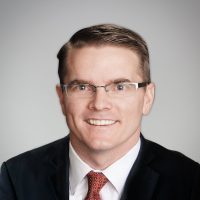
Dave Harden is Chief Executive Officer and Chief Investment Officer of Summit Global Investments. A graduate of Boston College, B.A., and Boston University, M.S.C.S., Mr. Harden has established himself as an expert in investment technology and quantitative research.
In this 3,839 word interview, exclusively in the Wall Street Transcript, Mr. Harden reveals his “special sauce” in developing his award winning portfolios.
“We like to buy outstanding companies with the least amount of downside surprises in the delivery of high risk-adjusted returns. We are a boutique asset investment firm in the sense that we have very specialized, highly experienced individuals here, so a lot of CFAs — over 80% of the firm is CFA — as well as an in-house General Counsel and Chief Compliance Officer.
We just won two awards from the Institutional Asset Management Awards for 2019. We were awarded the Active U.S. Large Cap Strategy of the Year for the SGI U.S. Large Cap Equity Strategy and the ESG Strategy of the Year for our SGI Global Equity Strategy.”
Several quantitative factors are involved in asset selection, however risk is one major one:
“Risk is managed throughout all our processes. For example, we also use multiple risk covariance matrices. Most shops out there today, if they even use a risk covariance matrix, only use one, and we use multiple, and that’s very important because risk covariances have weaknesses.
Understanding those weaknesses and utilizing multiple matrices allows us to have a better, more robust suggested universe of what to buy and what to sell and ultimately manage risk better. We are the only one that I know of that does that.”
This discipline leads to some interesting portfolio decisions:
“…One of our top holdings is Walmart. Now this is a large company with a lot of U.S. consumer exposure. But it is a global player in the sense that it receives probably on average about 30% to 40% of its sales from international markets. The reality here is that Walmart has done a very good job. They were late to the online game after Amazon (NASDAQ:AMZN). But its online sales have been growing. Actually, they’ve been growing at about 30% a year.
An interesting thing about Walmart and its online growth is that it does well if the market actually goes down. ”
Get all the top picks from this award winning portfolio manager in the entire 3,839 word interview, exclusively in the Wall Street Transcript.

Anthony Minopoli is President and Chief Investment Officer of Knights of Columbus Asset Advisors. Mr. Minopoli joined the Knights of Columbus in 2005 and is responsible for the day-to-day management of Knights of Columbus Asset Advisors — KoCAA — General Account investment portfolio and mutual fund strategies.
Mr. Minopoli is also responsible for overseeing the internal investment staff and the fixed income and preferred stock investment strategies. In his role as CIO, Mr. Minopoli provides oversight for the investment managers in the KoCAA defined benefit pension plan, defined contribution plan and charitable assets, all of which are externally managed.
In this 4,163 word interview, exclusively found in the Wall Street Transcript, Mr. Minopoli explains how his Catholic charity mandate changes the portfolio management equation.
“We focus on screening out companies that are involved in contraceptives, abortion, embryonic stem cell research, human cloning, pornography and for-profit health care that pays for any of those aforementioned things.
And then, when you get into the U.S. Conference of Catholic Bishops guidelines deeper, they also screen for companies that are involved in weapons of mass destruction, munitions makers, things like that.”
Mr. Minopoli is managing risk throughout the economic cycle:
“We’re also focused on what happens with interest rates, and I’m an old-time bond guy. One of the things that has concerned me is that the interest rate environment in the U.S. and indeed around the world has been heavily managed by central banks.
And what nobody knows is what that looks like in an unwind scenario. Whether it’s Jerome Powell here in the U.S. or other Fed governors, or central bank presidents or governors around the world, they realize their economic policies can’t go from heavily managed to laissez faire in one quick step.
We may see a very long, iterative process to normalize monetary policy around the world. I think it has to be slow. I think it has to be steady. I’ve been very impressed at Powell’s mindset. ”
Read the complete 4,163 word interview with the United States Conference of Catholic Bishops compliant portfolio manager, Anthony Minopoli, exclusively in this issue of the Wall Street Transcript.
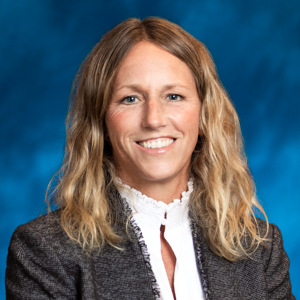
Collyn Gilbert is Managing Director of Keefe, Bruyette & Woods, Inc. Ms. Gilbert is currently a Managing Director with KBW/Stifel covering small- and mid-cap banks in the Northeast. Prior to joining KBW in 2013 when it was acquired by Stifel, Ms. Gilbert was Managing Director at Ryan Beck & Co., covering regional banks throughout the Northeast.
In this 2,912 word interview, exclusively in the Wall Street Transcript, Ms. Gilbert makes a case for her top picks in 2020.
Her picks are very interest rate sensitive: “The movements in the yield curve and in interest rates are really a heavy, heavy factor in how banks and, in particular, my universe of smid banks perform.”
New York State has an additional set of challenges:
“This was a particular setback for the NYC real estate market, given the large concentration of rent-stabilized properties in NYC and the interconnectedness these properties have with the overall strength of the real estate market in NYC.
These new laws have eroded the return profile for the property owner, which then has eroded the desirability for this asset class, which then lowers demand and overall activity in the sector, and that has negatively impacted the overall loan activity for many of the banks in the NYC metro market.
The other law that has impacted the real estate market in NY state was the SALT deduction that was implemented in 2018. This tax limits the property tax deductibility, which has, again, negatively impacted the real estate profile for the higher-property-tax regions of NY state.”
An additional challenge is on the technology side:
“At the large-bank level it is, but there still seems to be a large gap there to what the community banks are doing. Many banks are still in the initial stages of rolling out mobile products, online account opening capabilities and just moving to more sophisticated data management platforms.
So while we are happy to see these banks implementing these technologies, sometimes you want to say, “You should have had done that five years ago.”
Get the complete picture on all the Keefe, Bruyette & Woods picks from this experienced analyst by reading the entire 2,912 word interview, exclusively in the Wall Street Transcript.